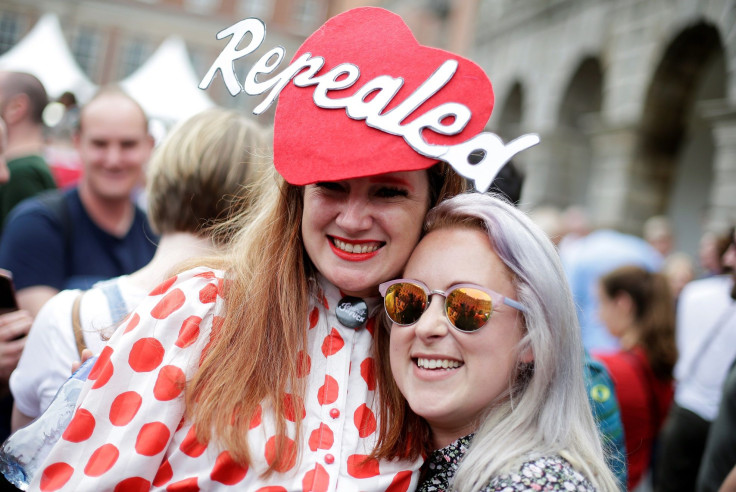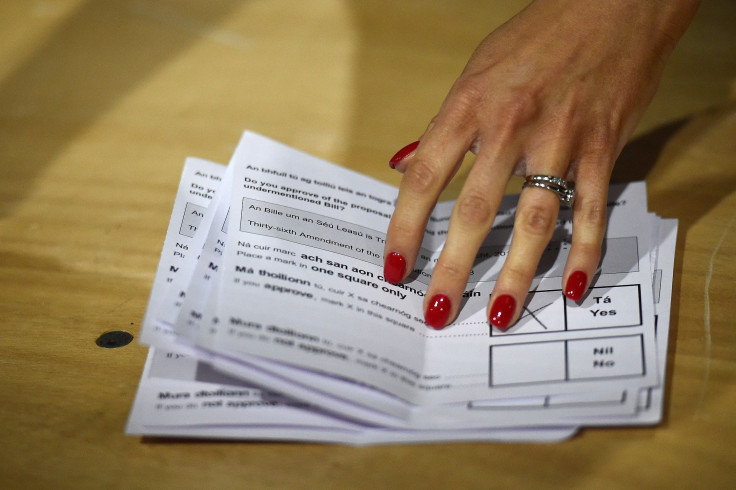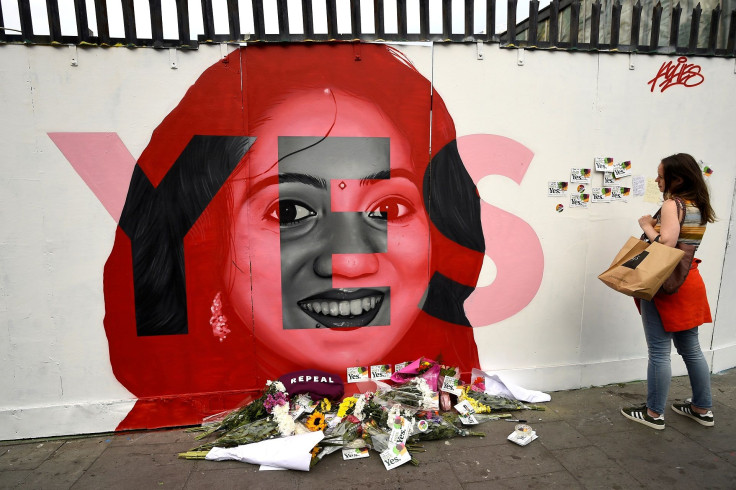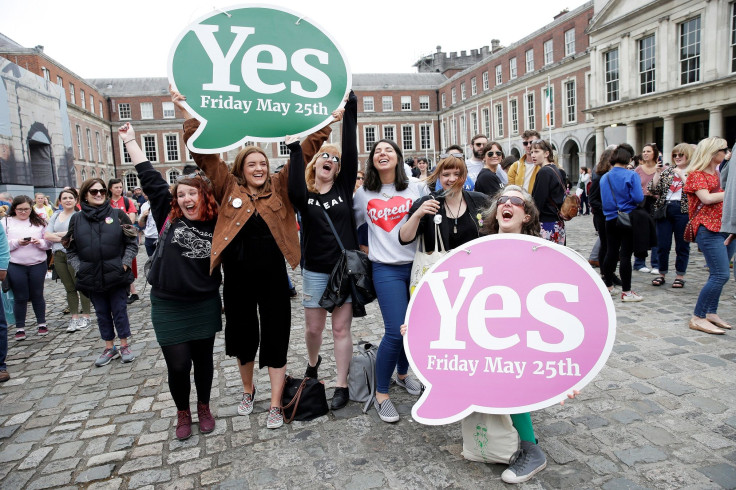Ireland exit polls show overwhelming Yes to repeal the 8th Amendment

Ireland has voted “resoundingly” in favour of overturning the abortion ban, according to Taoiseach Leo Varadkar. The final result has not been made public yet, although early results appear to be heavily in favour of the “yes” votes.
“The people have spoken. They have said we need a modern constitution for a modern country,” the prime minister said. Varadkar has campaign in favour of liberalisation. “What we’ve seen is the culmination of a quiet revolution that’s been taking place in Ireland over the past 20 years,” he said, adding that the people trust and respect women to make their own decisions about their health.
Fantastic crowds at Dublin Castle. Remarkable day. A quiet revolution has taken place, a great act of democracy. pic.twitter.com/MLtzkSkdLw
— Leo Varadkar (@campaignforleo) May 26, 2018
Exit polls on Friday’s referendum suggest about 69 percent of the voters want to repeal the Eighth Amendment, which recognises the right to life of a mother and the unborn. As abortion had been subject to criminal penalty in the country since 1861, the amendment allows concession, which makes abortion legal but only if the life of the mother is at risk. Ireland has one of the strictest abortion laws in the world. The Repeal the 8th movement aims to change that.
And it looks like it is winning.
Irish broadcaster RTE suggested 69.4 percent in favour of Yes in the exit poll it ran. The Irish Times’ own exit poll says 68 percent in favour. The official result is due late Saturday (local time).

Both sides of the campaign previously refused to admit defeat. However, one of the anti-repeal movements, the Save the Eighth group, has since conceded.
“What Irish voters did yesterday is a tragedy of historic proportions,” it said. “However, a wrong does not become right simply because a majority support it.” Spokesman John McGuirk vowed that they would continue to protest “if and when abortion clinics are opened in Ireland.”
Should the Yes vote claim victory, the Irish Government will legislate a new law by the end of the year. Ministers have previously promised to allow terminations within the first 12 weeks of pregnancy, subject to medical advice and a cooling-off period. They will also allow terminations between 12 and 24 weeks in exceptional circumstances.

Savita Halappanavar
The yes campaign gained momentum in 2012 when 31-year-old dentist Savita Halappanavar died due to complications of a septic miscarriage. She repeatedly asked for a termination but was refused because doctors said there was a foetal heartbeat. Following a nationwide outcry over her death, a legislation was amended allowing terminations when a mother’s life was at risk due to pregnancy complications or from suicide.

Her parents, speaking from their home in Karnataka, India, said they were “really, really happy” about the early poll results. Her father, Andanappa Yalagi, asked that the legislation be named Savita’s law.
“I want to thank you so much. I want to say ‘thank you’ to our brothers and sisters in Ireland for voting Yes. It is very important. There has been really a lot, too much struggle for the Irish ladies,” he told Irish Times.
Northern Ireland ‘should be next’
Following the apparent but still unofficial win of the Yes vote in Ireland, Northern Ireland wants to follow next. Amnesty International has called on the British government to repeal the country’s abortion law. Currently, women in Northern Ireland are only permitted to get abortion if their life is at risk or their mental or physical health is at risk in a long-term or permanent state.
Campaign manager Grainne Teggart said that the British government can “no longer turn a blind eye and deny us equality.” She was quoted by the Irish Times as saying, “We cannot be left behind in a corner of the UK and on the island of Ireland as second-class citizens.”
She said the referendum result in Ireland was a “momentous win for women’s rights.”






















